
Trident: Illegal And Immoral
The Ultimate Logic Of Trident Is Omnicide
Kings Bay Plowshares
Kings Bay Plowshare Activist Patrick O'Neill's Testimony re: Religious Freedom Restoration Act. Nov. 19 extracted from from pages 144-172
THE COURT: All right. We will now turn to Mr. O'Neill.
Mr. O'Neill, if you would please step up to the witness
stand.
THE CLERK: If you'll please raise your right hand to be
sworn.
PATRICK O'NEILL, having been affirmed to tell
the truth, testified as follows:
THE WITNESS: I affirm that.
THE CLERK: Thank you. You may be seated. Please state
your full name and spell your last name for the record.
THE WITNESS: Patrick O'Neill.
O apostrophe capital N-E-I-L-L.
So I'm -- I was -- I was told that I shouldn't
cross-examine anybody today, so I was very faithful staying in
my seat and not doing that.
THE COURT: Mr. O'Neill, one question before you get
started. Understanding that you're proceeding pro se here, you also have standby counsel in this case as well.
THE WITNESS: Yes. My standby counsel is Darrell
Gossett right there.
THE COURT: Yes. And you've seen that two of your
co-defendants have had their standby counsel ask questions that were pre-prepared.
THE WITNESS: Right.
THE COURT: Do you intend to proceed in that manner
or --
THE WITNESS: No. With a narrative, Judge.
THE COURT: With a narrative. All right. You can go
ahead when you're ready.
THE WITNESS: Okay. So now it comes down to me. My job
is to convince Judge Cheesbro that this case should be
dismissed. This is a big burden, but I'll try to do my best. I
want to let -- I want to let the United States Attorney, Karl,
know that right now I want to stipulate to the fact that I have
a long, ongoing criminal history. If you'd like to skip the
litany of asking me about all my arrests, that will be fine
because I will stipulate that it's all true, and indeed, I've
been arrested seven times at the Pentagon alone. So if you want
to take that into consideration as a stipulation, I'm happy to agree to that.
I -- I -- I'm a father of eight children. So two of my
daughters are here with my wife today. Mary Evelyn is here and
Annie and my wife, Mary. Hi, Mary Evelyn. And I have six
daughters and two sons. I have two grandchildren who have both
been born just as recently as when Judge Baker was here. So
it's just been about 10 weeks, I guess, since the two new
grandchildren came into our lives.
Additionally, one of my jobs today, both to convince
Judge Cheesbro that we should have this case dismissed, is also
to not put anybody to sleep, and I'm going to do my best to do
that without boring anybody either, because a lot has been said,
and the judge has told us not to be redundant and repetitive
unnecessarily.
I was born on March 27th, 1956. My parents were Ann
O'Neill and Terrence O'Neill. My father died in 1960 in a
construction accident in Manhattan. He was only 28 years old,
leaving my mother a widow with two preschool-aged sons at the
age of 23. My mother, Ann O'Neill, died in 1998, so she's been
dead for 21 years.
My mother was a big influence on my religious faith, and
I'm going to establish my religious faith as being something
that's sincere. But I remember, as you folks remember who are
old enough, during the Vietnam War, when you would watch the
news at night on TV, there would be two sort of ticker tapes of
numbers going by, and the anchorperson would say, this number is
the number of people -- number of U. S. soldiers who died today
in the Vietnam War, and the second one was the running total of
the number of U. S. soldiers who had died during the course of
the war. So anybody -- so my mother, of course, you know, would
be watching the news with my brother and I sometimes, and she
would always say to us, "If this war is going on when you boys
get old enough to be drafted, I'm going to take you to Canada,"
because my mother had experienced death of her husband at the
age of 23, and she was worried that she would have to experience
the death of her two sons as well, because the war was going on.
It was proliferating.
Regarding my Catholic faith, having been born in The
Bronx, New York and growing up in New York City, I was a great
fan of the New York Yankees, so I used to go to Yankee Stadium a
lot for baseball games, but the most exciting thing I ever did
at Yankee Stadium happened in 1965 when I was nine years old.
They announced at my church, Saint Anastasia Church in
Douglaston, Queens, that they were going to have a raffle, and
the raffle was to win a ticket to go to Pope Paul, VI's, Mass at
Yankee Stadium. And when I heard about this raffle, I was
pretty excited to be able to go to a Mass at Yankee Stadium that
was going to be celebrated by the Pope.
So I went to the raffle, and I put my name in, and sure
enough, my name got drawn out, and I won a ticket to go to
Yankee Stadium by myself at the age of nine, to go to Pope Paul,
VI's Mass. And that certainly was a remarkable thing for me as
a young child to be able to go and have a Mass celebrated by the
Pope.
I also went to a Mass of Dom Helder Camara (ph) at Yankee
Stadium as well, Brazilian prophet. But, anyway, that sort of
was the beginning of my journey as a Catholic and my devotion to
the church.
I work now as a chaplain at Wake Med Hospital in
Raleigh, along with my wife. We visit the sick, and we bring
the Eucharist to the sick, and a lot has been said about the
Eucharist here. The Eucharist, of course, is Holy Communion,
which is a sacrament. It's all the same thing. So we bring the
Eucharist.
And Mark was testifying that during his time in the
jail, he never had a liturgy, an actual celebration of the Mass
and only -- I think you only got the sacrament four times, you
said, and it wasn't very common in the Glynn County Jail to be
able to receive the sacrament.
I would prefer, rather than to talk about the compelling
interests that the government has and that the defendants have,
I would prefer to say that we all have the same compelling
interest, that we're really here today because we share a
compelling interest in preserving life. Nobody wants war.
Nobody wants to see nuclear weapons used.
Judge Cheesbro said at the beginning of this hearing,
the beginning of the hearing on November 7th, that it's
indisputable that these weapons are horrific and dangerous.
It's not a matter of dispute. So I think the compelling
interest, ironically, is one that we share.
I wanted to sing the song "Why Can't We Be Friends" when
I first sat down, because I really, really want us to really
share a compelling interest in saving the world. As I look
around the room and I know the people here who have children.
Several of my friends in this room are grandparents. I and my
wife are now grandparents. Many of us in this room have
children. We're sharing our lives together as parents. We have
a compelling interest to save the world from destruction. We
have a compelling interest to fight global warming and to keep
the seas from rising and to keep the temperatures from rising
and to keep those nuclear weapons from being used and to abolish
them. So we do share a common and compelling interest. We want
peace in the world.
And while we might have some disagreement about the
tactics of that, I think that this is the thing that we share.
I'm guessing -- and it's just a guess, but I'm guessing
that even though most people in the courtroom today happen to be
Catholic, which would be unusual, that almost everybody in this
courtroom would probably profess some fidelity to Christianity,
to a belief in the Prince of Peace, to a belief that a better
world is possible, a belief in the power of prayer, a belief in
prophetic witness, a belief in sacramental witness, that we
would really share a lot more values than separate us, that
we're united in our beliefs about that.
In scripture Jesus talks about putting before us death
and life, that we should choose life. We call Jesus the
nonviolent Savior, the Prince of Peace. We celebrate that
fidelity to nonviolence to love.
Martha testified at length about the inspiration of her
grandmother; and when I was young in 1978, I went to the
Catholic Worker, as Carmen referred to as the mother house in
New York City. I went to one of the Friday night round table
discussions, and that particular night there was a priest by the name of
Henri Nouwen, a beloved author, was speaking, and Dorothy
was quite elderly at that point. It was maybe a year
was quite elderly at that point. It was maybe a year
before she died or a year-and-a-half before she died. She
wasn't coming down to things quite as regularly, but this
particular night to hear Henri Nouwen, Dorothy came down to the
auditorium to hear Henri Nouwen speak. And I was in awe of
Dorothy and never had the guts to like walk up to her and
introduce myself or anything. It's not that I was shy, but I
was kind of shy about that.
But I was standing in the kitchen after Henri Nouwen's
talk, and I was getting myself a cup of tea, and I felt a tap on
my shoulder, and it was Dorothy Day tapping me on the shoulder,
Martha Hennessy's grandmother. And Dorothy Day said, "Hello, my
name is Dorothy." She shook my hand. She said, "Would you like
to join me for a cup of tea?" And invited me to her table to
share a cup of tea. That was a momentous moment in my Catholic
spiritual growth, that this servant of God, a woman who is
likely to become a saint, invited me to come down and have a cup
of tea with her.
I can't say that I recall much of the dialogue that we
shared, and I don't really think I said much, but she was asking
me a lot of questions about myself, and that was sort of Dorothy
Day's way. Another year later I was at Dorothy Day's wake and
funeral in New York City that was attended by Cesar Chavez and
Daniel Berrigan and Abbie Hoffman and a lot of interesting
people, I. F. Stone, and some of the people
in this courtroom, but it was also remarkable to be at that.
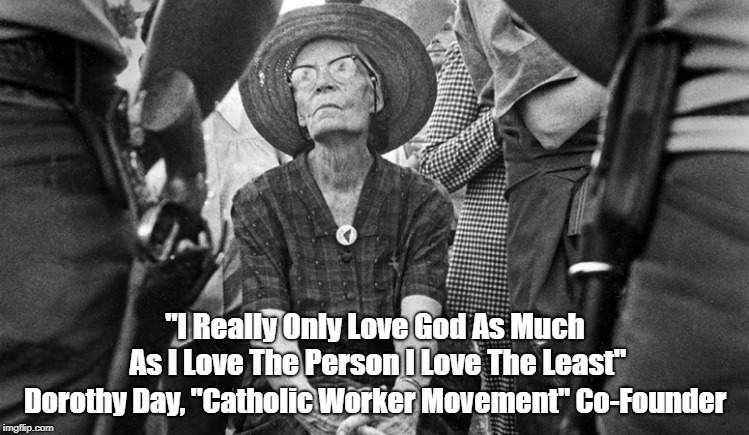
I think that we came to Kings Bay to express our
religious belief because it's a place where there's a secret
being kept. And we have to be able to expose the secret that
when the base commander was sitting in this seat on November
7th, he didn't want to name the sin. Maybe he didn't see it as
a sin. But the base commander mentioned the Trident II D5
missile. He did not refer to it as a nuclear weapon. He did
not refer to it as a first-strike weapon. In fact, he referred
to it as a second-strike weapon.
But the point is that we came to Kings Bay to recognize
the sin of Trident, specifically the sin of the D5 missile. It
is the most insidious, deadliest, horrific weapon ever built.
It has no right to exist. The Trident II D5 missile equals the
opposite of God. It is absolutely a sin. It needs to be
recognized as a sin, and that's why we're all here today,
because it is an abomination.
So the seven of us went to Kings Bay to say no to that
abomination, no to that sin. And, yes, we had to go there,
because that's the place where the sin is being committed.
Now, one of the things that has been very shocking to me
since we went to jail -- we went to Kings Bay, you know, on
Martin Luther King's anniversary of his death, 50 years, and by
the way, in my biographic, I'm a journalist. I've been working
as a journalist probably for about 35 years, and one of the --
I've done a lot of writing about religion, and I've had the good
fortune to interview Coretta Scott King; Martin Luther King,
III; Yolanda King -- the late Yolanda King, Martin Luther King's
daughter, has since died; Jesse Jackson three times; Shirley
Chisholm; Vincent Harding; some pretty -- and I'm not even
saying everybody. I've had the opportunity to speak to some of
the most profound and prophetic people; Nobel Prize winners,
several; Peace Prize winners, I've spoken to -- interviewed
several of them, and in my capacity as a journalist, I've been
able to learn a lot from a lot of people. That's the nice thing
about having
access to prophetic people as a journalist, you get
to ask them questions, and it's kind of an incredible thing and
a real honor.
So as a writer and a religion writer, I've been able to
sort of come into contact with these incredible witnesses to
God's truth and to be able to say, wow, this is pretty amazing
stuff that I'm being told here.
So then what happens is what I call -- and I think the
great Biblical example, the miracle that Jesus kind of does
several times, well, the several miracles, you know, feeding the
masses and large groups, but Jesus restores sight to the blind.
That's one of Jesus' major miracles. And we realize that the
miracle of restoring sight to the blind has a physical component
to it, the person can see again, but it also has a spiritual
component to it, because once we can see, then we have the
responsibility of sight. We can't say that we're blind to the
truth.
So I always see that healing of the sightless person as
also endowing the sightless person with truth, spiritual truth
that can no longer be denied. So for me, maybe that meeting of
Dorothy Day or going to Pope Paul, VI's Mass was sort of a
spiritual opportunity for me to see differently, to see with
clear eyes what was going on in the world.
When we came here, one of the things I realized -- and I
thought, well, I'm here with Dorothy Day's granddaughter; Father
Steve Kelly, one of the most prominent Jesuit priests in the
world. I'm here with Elizabeth McAlister, you know, a 20th
Century giant of the peace movement, the anti Vietnam War
movement; with my three other Catholic Worker friends, and I
thought to myself, you know, we're going to be big shots down
there in Georgia. You know, people are going to be, wow, we
want to hear what these people have to say. And I was humbled.
I was humbled. I never realized how inconsequential this act
is. Nobody cared. Nobody cared at all.
I sent three op eds to the Florida Times Union, and the
editor turned all three down. I sent an op ed -- and I'm an op
ed writer -- to the Atlanta Constitution. It was irrelevant.
It was turned down. I was really surprised of how
inconsequential it was that the seven of us came here and got
arrested at Kings Bay and nobody really cared about it.
But it got me to thinking, if in fact the seven of us
came here to expose this sin and nobody cared, well, what did
that say about the importance of us coming here? It made it
even more profoundly important that we come here, because --
now, maybe I'm being a bit judgmental to say nobody cared.
Maybe that's really too strong a language. Nobody realized what
we were talking about. It was like these seven people are
really odd balls. I mean, maybe they said we were fanatics or
zealots, but whatever it was, it just didn't conger up any fears
or worries. Nobody was worried.
So we had this visit from the Catholic priest who comes
to see us from Our Lady Star of the Sea at St. Marys, Georgia.
The priest comes to see us to bring us Holy Communion. The four
of us, Steve, Carmen, Mark and I sit down, and the priest does
the communion service. He gives us the Holy Eucharist, and then
he says to us, "I've really been caused some trouble by you guys
in my Catholicism because the people in the pews at my church,
they want to know how seven people can break into this base and
damage government property and claim to be doing it in the name
of Jesus and in the name of their Catholic faith, and I don't
know what to tell them."
Now, that was a profound moment for me, but the nice
thing was that this priest listened to us. So for 30 minutes he
just listened. The only time he had a disclaimer is when he
said, "I don't even believe in guns," he said. That's the only
time he spoke, but listened very carefully. And, fortunately,
we had Father Kelly with us, who is seminary educated; Mark,
seminary educated and were able to speak his language. But 30
minutes passed, and that priest completely understood us,
politically and theologically, and he wrote an email to that
effect afterwards.
But part that was -- I mean that flummoxed me was that
for four years this priest sat in his rectory overlooking the
harbor of St. Marys, seeing those Trident submarines float by,
and never once did he contemplate the fact that the entire
community of St. Marys, the lives, the livelihood of that
community is predicated on the end of the world, that these
weapons which represent without a doubt, weapons that can end
life as we know it on Planet Earth, were inconsequential, even
to the priest. He'd never thought about it.
So our Catholic faith compels us to come here to speak
about something so dangerous and so horrific, something that
represents such a threat to our families, to our children, to
our grandchildren, so we engage in something that's unorthodox,
for lack of a better word. You know, that's been brought out
through the U. S. Attorney's questions. You hammered on things;
you painted on things; you wrote on things; you broke in; you
cut locks. And, you know, I really want to argue that this was
theatrical in nature. What we did was theatrical, because in
order to get some attention to this issue, we had to do
something spectacular. So, indeed, this was a spectacular
thing. That's why we're all gathered in the courtroom talking
about it now, because we had to do something spectacular. If
we'd come to the base and just held up signs, this would not
happen. The Trident wouldn't be on trial. The D5 would not be
identified as the sin that nobody wants to talk about.
So because we were theatrical and because we did these
kind of wild things, for lack of a better word, we're having
this conversation, which I think, even though now this
conversation might be boring to some of the people in here, I
think there's going to come a time in all of our lives,
unfortunately, when we're going to look back on this
conversation and we're going to say it was a profound moment in
our lives when we talked about something really meaningful that
we preferred not to talk about. So, in essence, we have forced
a conversation to go to a place where people don't want it to
go.
One of the things that the Kings Bay Plowshares
represent, and it's part of our religious faith, is identifying
the sin, naming the sin and opposing the sin, dissenting to the
sin. So one of the things that's really a shame is that our
government right now is not interested in dissent. Dissent is
kind of a dirty word. We prefer that everybody marches in
lockstep in support of the Trident system, believing in the
government's take on it, that it's a second-strike deterrent
that keeps us all safe. We want -- that's what really the
government wishes everybody felt that way.
The government wishes that we weren't here saying that
we don't feel that way. So dissent is something that we
express, something that religious people express when it's this terrible sin.
So we know in the history of this country that some of
the worst evils in this country that have been changed; for
instance, slavery, segregation, women not having the right to
vote, child labor laws, all of these things I point out were
immoral, but maybe not felt that way at the time. They were
accepted at the time. But people of conscience dissented.
People of conscience did theatrical things. Like women chained
themselves to the Statue of Liberty. But in many cases people
died. People sat in at lunch counters; that was theatrical.
People did things for religious reasons to call attention to a
great evil. And ultimately those evils were changed.
Of course, it's our hope -- and, again, our shared
common vision, our shared compelling interest is to hope that we
can have a world without war and a world without nuclear
weapons. That's our prayer, and that's something we can all say we agree on.
Now, we've talked about the burden that this represents
to our faith, and I'll say, for my faith, obviously when I go to
work at the hospital, as far as I know, I'm the only employee
and probably the only chaplain wearing an ankle monitor in the
hospital. I am -- and when I go to the YMCA and I'm in the
locker room, it's quite obvious, and that is a way to sort of
call attention to this shamefulness that I'm under the -- I'm
under the government's watch, I'm on the government's watch list.
And certainly that's a burden. That's a burden to do that.
The time that we spend in jail is the time away from the
Eucharist, a time away from our religious practice. That's a
burden. But I sort of view a burden -- and I know I have to
speak about the burden that I'm experiencing myself, and I am
experiencing a burden myself because of the nature of this
prosecution, the likelihood that I'm going to be going to prison
and so on. But I also see the burden as our burden. It's a
universal burden and that one of our jobs here and one of our
burdens as people of faith is to be able to speak up in defense
of those who are burdened by the same things, but have no
access to speak about that burden.
So in a sense the burden of others is my burden. But
that's the nature of our religious faith, because we can't
separate our religious faith and our religious practice from our
lived lives. They're the same thing. They're not -- they're
not distinct. They're the same thing.
So our Catholic faith calls us to uphold the sanctity of
life. We are burdened because they are burdened. We take on
the burden of those who are powerless. And our Catholic faith
calls us to preserve life and to be stewards of God's creation.
I guess I'll close with a couple things about the
compelling interest again. As I said, it's our shared
compelling interest to prevent nuclear war; and really, even
with -- the government claims that their compelling interest is
to protect the base. But they're really saying that they're
protecting these weapons of mass destruction, because they
believe that somehow those weapons keep us safe. I mean, that's
the government line. The compelling interest is that these
weapons keep us safe. And we believe that the compelling
interest is the common good, which is endangered and jeopardized
by the weapons of mass destruction.
So I think sometimes when we look at the compelling
interest, we forget. For example, when Jesus cleansed the
temple of the money changers, He's not disputing that the
compelling interest of selling the animals to people who had to
participate in these ritual sacrifices was legitimate and
compelling, but He saw the excess of that and that His temple
had become a den of thieves, and then He overturned the tables
and threw out the money changers, because there was a
greater compelling interest.
A greater compelling interest is what we are aware of
here at the Trident base, and that's to save humanity from its
own hand, from destruction by its own hand.
So, in essence, I'd like to say that I see my job as
being an Evangelist. That's language that most Christians can
relate to. To be an Evangelist is very different than being a
fundamentalist, but an Evangelist is somebody who wants to
proclaim prophetically the Good News. So I call myself a
peace Evangelist, and part of the peace Evangelism that I'm
partaking of has led to my being here today.
Thank you, Judge.
THE COURT: Thank you, Mr. O'Neill. Questions?
Cross-examination from the government?
MS. SEMALES: Just briefly, Your Honor.
CROSS-EXAMINATION
BY MS. SEMALES:
Q. Hi, Mr. O'Neill. How are you?
A. Hi, Katelyn.
Q. You testified on direct that you'd stipulate to your
criminal history; is that correct?
A. Yes, ma'am.
Q. And you also testified that you had seven arrests at the
Pentagon?
A. Yes. I think I -- yeah, seven arrests at the Pentagon,
that's right.
Q. And one of those arrests was for depredation, throwing
blood; isn't that right?
A. Twice. Well, one was dismissed, but twice for blood, yes.
Q. And you were also arrested in Orlando in, I believe, 1992?
A. That was a Plowshare action.
Q. For conspiracy to commit damage and for committing damage
to Army property?
A. Almost the same charges as here, except for the
destruction charge I didn't have and the trespass charge.
Q. And you were convicted of those charges?
A. And I spent two years in federal prison.
Q. You're making my job easy, Mr. O'Neill. You had another
arrest in 1982; is that correct, at an Air Force base, for
trespass?
A. Right. I went to prison then, too. Well, no, the '82 one
was at Fort Bragg, and I went to prison for that one, too. That
was for impeding traffic.
Q. And you admit that when you went to the naval base to
Kings Bay in this incident, that you and your co-defendants,
you cut the gate; correct?
A. I cut the gate. Well, I cut the lock. I was very
surprised that you guys found it.
Q. And that you and your co-defendants threw blood?
A. We didn't all throw blood, but I did throw blood on the --
Q. But some of you --
A. -- insignia, that's right.
Q. And cut fences and brought tools onto the base, everything
that --
A. We didn't have to cut a fence, but -- because we went
through the gate.
Q. Concertina wire.
A. Oh, that was Carmen.
Q. Not you specifically.
A. The ones -- oh, those of us who went to the shrine didn't
have to cut a fence. So, yeah.
Q. And you never asked the naval base commander or anybody
at the naval base for permission to come onto the base --
A. Never asked permission, I didn't.
Q. -- did you? No further questions.
A. Thank you, Katelyn.
THE COURT: Any additional cross-examination from
co-defendants?
DEFENDANT KELLY: Just a couple.
(Nothing omitted)
PATRICK O'NEILL - CROSS-EXAMINATION BY DEFENDANT KELLY:
Q. It's hard to articulate -- thank you for your testimony.
It's hard to articulate. Have you observed the pattern in your
own life in dealing with the government authority, military
authority, and in the instance of not only this -- these
proceedings, do you see an attitude emerging or could you
typify the attitude of the government and this approach about
asking their permissions?
A. Well, I understand why -- why the U. S. Attorney is asking
that question, because you are making sure that we dotted
our Is and crossed our Ts --
THE COURT: Mr. O'Neill, I believe there may be a
receiver that got knocked off there.
THE WITNESS: Oh, it's on the floor.
THE COURT: Thank you.
BY FATHER KELLY:
Q. I can ask the question again or do you --
A. Yeah. Go ahead. Rephrase it, Steve. Yeah, thanks.
Q. In your own life and your interactions with either the
government or military authorities and your observation and
participation in these proceedings, what is emerging in terms
of the prospects of asking permissions?
A. Okay. When you have my reputation in North Carolina,
having been arrested at several military bases over a long
period of many years, let's just say that you get to be a known
entity. Okay.
So when I show up at Seymour Johnson Air Force Base or at
Fort Bragg in North Carolina, two places where I've been
arrested, I am noticed right away. And even when there's an
open house happening at a base -- now, both of those bases are closed.
But even when there's open houses at those bases, I am stopped
and not allowed to go in. Okay.
Now, I've been arrested twice for charges that I would
consider the charge of talking too much. I asked the police,
how come I'm not allowed to go in? This is a public activity
today. It's an air show or whatever is going on. How come I'm
not allowed to go in? And so I engage in a conversation, a
respectful conversation, and the way the conversation has
developed -- and this has happened three different times -- is
that I keep asking questions; the police and the military police
get tired of me asking my -- hearing my questions and don't want
to answer them and say, "If you ask another question, you're
going to jail," which I always do ask another question and then
I end up going to jail for talking too much.
None of those charges have ever stuck. I've never been
found guilty in any of those cases where I've talked too much,
but what that has succeeded of doing is depriving me of my
constitutional right to speak, to go onto the base, to be part
of a public witness, but I'm being discriminated against because
I'm seen as somebody who might do something, not because of
something -- I'm not being arrested for something I did. I'm
being arrested for something I might have done. So asking
permission has never worked for me, Steve.
Q. One further question. In your opinion -- and you've
participated in all of these -- can the government and perhaps
even the military, can they recognize -- and you've been
observing these proceedings -- can they recognize a religious
act?
A. Do they recognize it?
Q. Can? Are they able to?
A. Can the government do that?
Q. In your opinion.
A. Well, are we talking about the government as an entity or
are we talking about --
Q. How about the U. S. Attorneys?
A. How about Captain Carter, Sergeant Carter who approached us?
Q. I never get a word in edgewise.
A. Go ahead. Try and ask the question again.
Q. How about the U. S. Attorneys? Do you think they can
recognize a religious act?
A. Yeah, and I think they recognize it, and I think they like
me.
Q. And, just finally, you're basically you're very sincere
about your going onto the base to bring the Word there; is that right?
A. One of the most profound testimonies today was when Carmen
Trotta was questioned about going into a deadly force zone, and
he said, "That's amazing, isn't it?" Because he amazed himself.
I can't tell you how scary it is to slip through a gate at that
naval station and walk down a grass path not knowing what's
going to happen. It's one of the most frightening things that
anybody can imagine. And it's scary as could be, and it makes
you want to vomit. And we do it reluctantly. We do it because
we feel the Holy Spirit grabbing us by the scruff of the neck
and dragging us along, at least I did.
It's a horrible thing to have to do. It's a horrible
thing to have to face this kind of a situation, and I try my
best to make it as least adversarial as possible. I want to be
able to be friends with these four people and everybody else
in this courtroom for the rest of my life. I hope they write to me in prison.
DEFENDANT KELLY: I have nothing further. Thank you.
CROSS-EXAMINATION BY MR. CLARK:
Q. Earlier you described some of the actions taken at the
naval base as theatrical or spectacular. Correct?
A. Yes.
Q. Would you also agree that many of the sacraments are
likewise spectacular?
A. Yeah, that's a good -- that's a good way to describe it.
You know, one of the questions that Karl asked way back
in the beginning was -- to the professor was the seven sacraments, and
the seven sacraments are spectacular. They are spectacular.
And when I bring the Eucharist to a sick person in the hospital,
I'm bringing the Body of Christ. So what Catholics believe is
that the Blessed Sacrament is Jesus Incarnate. Okay. We
believe that the words that Jesus spoke at the Last Supper, "do
this in memory of Me" means that the sacrament, the bread has
become the Body of Christ. So when you bring that to somebody,
and I tell the people -- because sometimes people feel, well,
I'm not worthy to receive the sacrament. Catholics have a
tremendous amount of guilt; I'm not worthy to receive the
sacrament. So I turn to that sick person in the bed, and I say,
"Jesus said, 'Only the sick need a physician.' I am the
physician." I turn to them and say, "Jane, you're in this
hospital bed sick, and I" -- and I take out the picks that has
the Blessed Sacrament in it, "and I have the physician right
here. You're worthy to receive it."
It is a spectacular moment, because the church teaches two
things. It's the Body of Christ, and it's a healing sacrament,
and if you receive this sacrament, you're going to experience
God's healing. That's a miracle.
Q. So it is fair, then, to characterize your actions on April
4th -- or April 5th, I know there's some debate about the time,
but April 4th, April 5th -- as being sacramental and based on
your deeply held religious beliefs?
A. Yeah, and I find it easier to say sacramental than it is
to say prophetic, because I don't want to refer to myself as a
prophet. I think that we can engage in prophetic acts, but I
humbly don't feel comfortable with that label. But to say
something is sacramental is saying that it's holy, that it's
sacred, and that I can certainly say.
Q. And Mr. Knoche had asked Ms. Hennessy earlier about if the base were to allow them -- or you guys time or access, say they let you, you know, on Saturday at 2 you're allowed to go to the missile shrine to engage in symbolic denuclearization or some designated time or area near the site of the nuclear weapons, would that enable you to fulfill your religious obligation, your belief that you need to perform this sacrament?
A. Well, I mean, we're not discussing at length what this
contract would look like, but it sounds -- it sounds
interesting. Sounds like something I certainly would want to
hear more about.
Q. And I guess maybe to make it a little more clear, there is
no requirement, at least to you or in your mind, that it be done without permission. If you were given permission to allow (sic) the site, you could achieve the same goal?
A. That's right. And one of the things that was testified to
when the U. S. Attorney asked several witnesses would a ban and bar letter have been acceptable, all I can say is on April 5th if somebody had handed me a ban and bar letter, I would have hit I-95 as quickly as possible heading home, and I wouldn't have come back.
Q. You've complied with every court order issued by the
Court, haven't you?
A. Yes.
MR. CLARK: Thank you.
CROSS-EXAMINATION BY MS. McDONALD:
Q. Mr. O'Neill, I just want to clarify a couple of the
concepts that have been testified to. Number one, this use of
the word theatrical, would you agree with me that a lot of
Catholic rituals or sacramental acts can be characterized as
theatrical, such as burning incense, wearing of the long robes,
burning candles, things of that nature?
A. I wouldn't want to confuse ritual with theatrical. I
think the reason that this action was theatrical is because we
tried to look for some tremendous way to express our feelings.
Right? And we had to be creative. I guess maybe creative is
the better word for it. So if you want to say that there's a
creative component to religious ritual and a creative component
to what we've done, I can go with that. But theatrical really is something
that's more -- I guess I'm more referring to the word drama here.
Q. Okay.
A. We had to be dramatic because that's the only way that we
got the attention of the government. We came there and said,
look what you're doing here, and we did it dramatically, and we did it in a way that demanded that they pay attention to us, which wouldn't have happened if like Karl asked, if we held signs outside the gates, you know, well, I'm arguing, of course, that what we did was even inconsequential on this level, but certainly if we'd held signs, it would have been inconsequential completely.
Q. Okay. So some of the acts that were taken that led to
this criminal prosecution you're saying were creative and some were sacramental? Is that fair?
A. They were all sacramental.
Q. Okay.
A. No, there's no doubt that this was -- you know, and I want
to be -- I didn't say this to you, Judge, because I said it to
Judge Baker, but I want to say it to you. I'm not the kind of
person who gets up into this seat and says, I'm right, what I
did was right, God's on my side, no question about it. I don't
feel that way at all.
I come into this seat to testify as a humble person, just
like everybody else, searching for God's truth. I recognize the
fact that the distinction between pride and prophetic witness is as thin as a hair. If we've done anything as a matter of pride, it's a fraud. But if we have done it because of our fidelity to God, even if it isn't necessarily what God wanted us to do, but we did it because we believed it was God's will, then it's something divine. But I realize how close those two things are, and I'm very careful not to declare myself as knowing for sure that I've done God's will. I'm not sure.
Q. Was that your attempt?
A. It absolutely was my attempt.
Q. And then you were asked some questions about some of your prior arrests
and prosecutions. In any of those did the government ever offer
other alternatives as opposed to criminal prosecution?
A. There have been some times when I wasn't arrested and I
was given a ban and bar letter, which is similar to what the
base commander testified to. And I did not violate those ban
and bar letters.
Q. Were you given any other alternatives in this particular
case by the government, other than criminal prosecution?
A. No.
MS. McDONALD: Thank you.
THE WITNESS: This is your last chance to cross-examine,
anybody.
THE COURT: Any further cross-examination?
All right. Mr. O'Neill, as I've done with the other pro
se defendants, you would ordinarily have an opportunity for
redirect here, if you were represented, and because you've
testified by narrative, I'll give you an opportunity to offer
anything to the Court that you think needs to be considered
at this time based on the cross-examination that's been
performed.
THE WITNESS: I think for the sake of everybody's mental
health, I'll just get off the stand, Judge.
THE COURT: Thank you, Mr. O'Neill.




























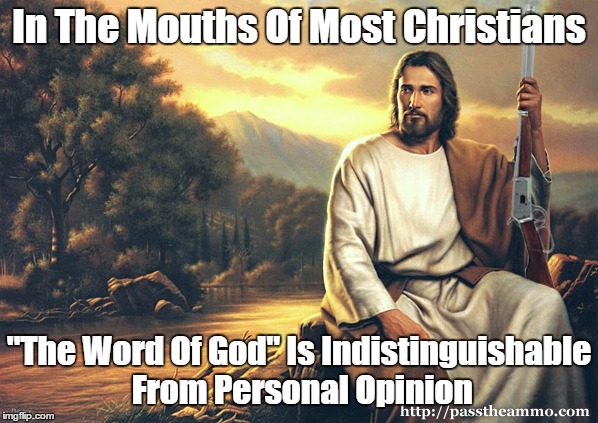

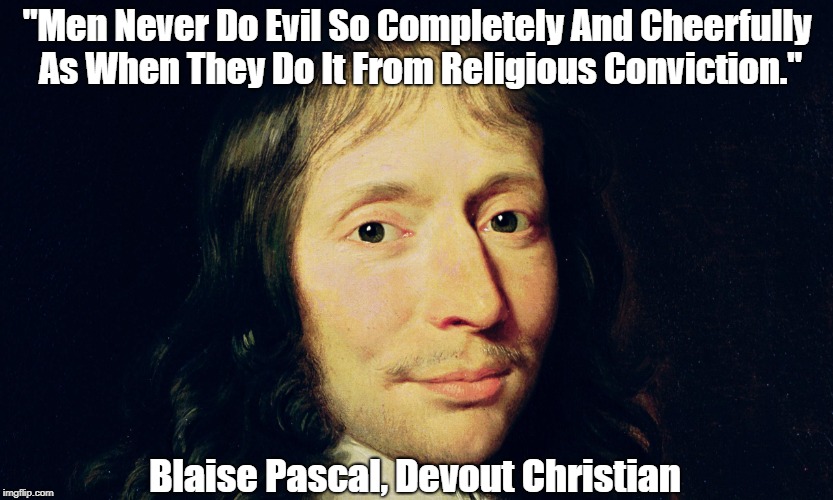


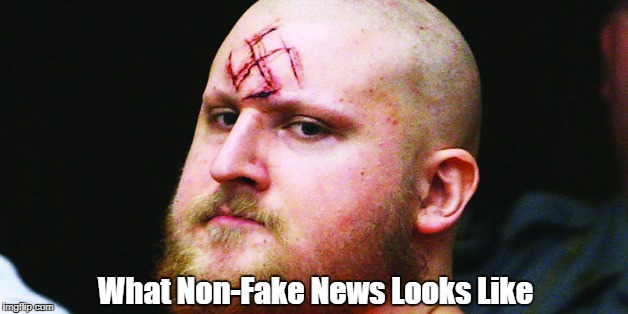


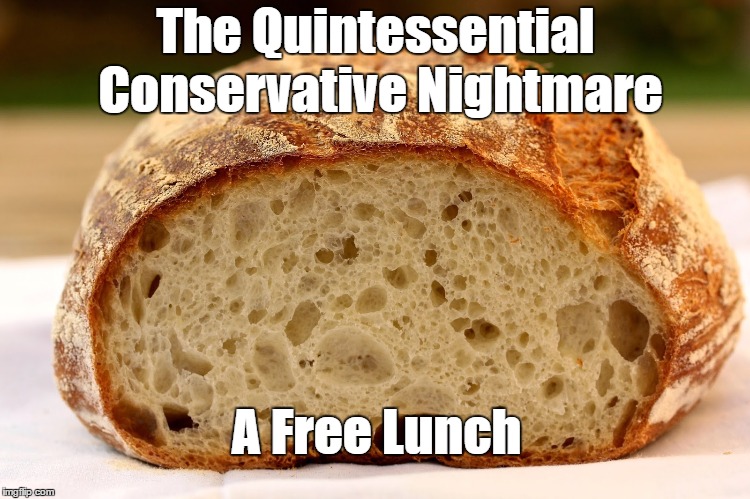














/https%3A%2F%2Fblueprint-api-production.s3.amazonaws.com%2Fuploads%2Fcard%2Fimage%2F912458%2F8f101fc2-d3b7-495a-8370-0267fd2e3048.jpg)










